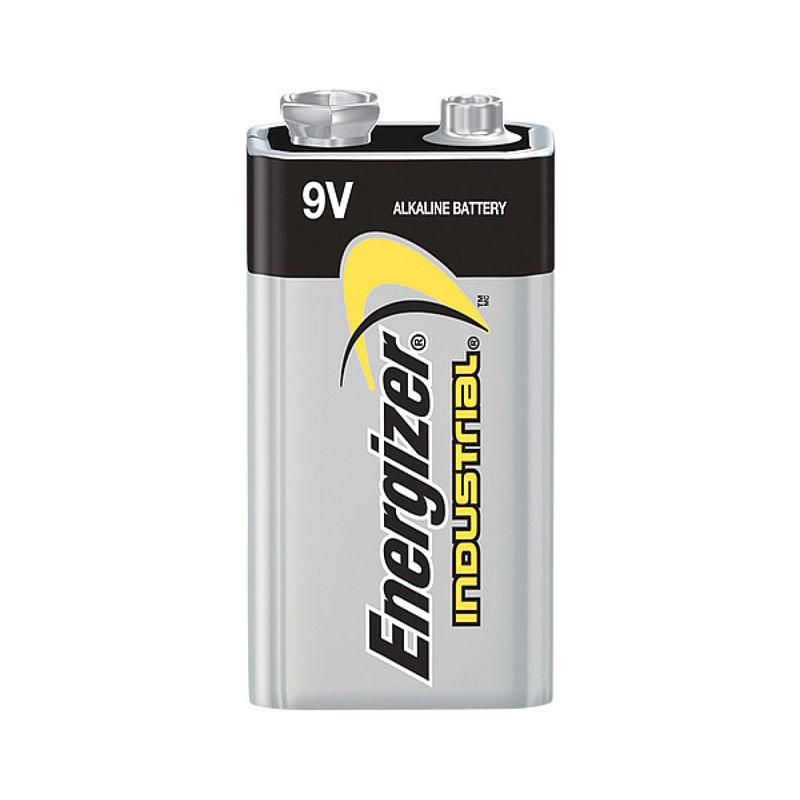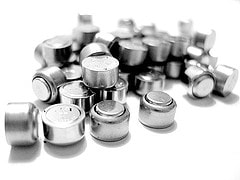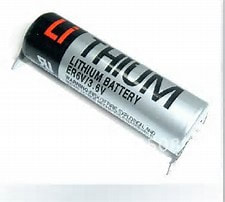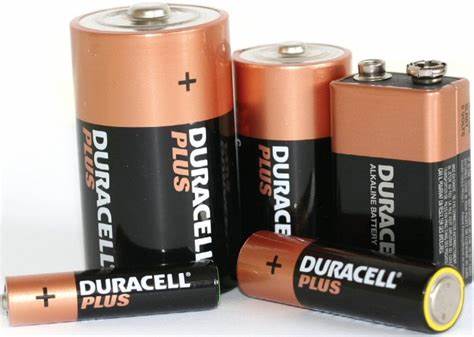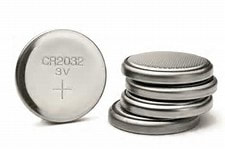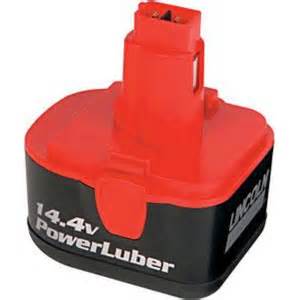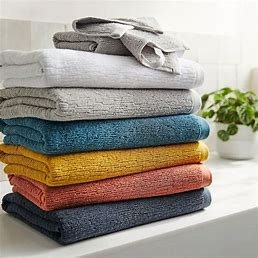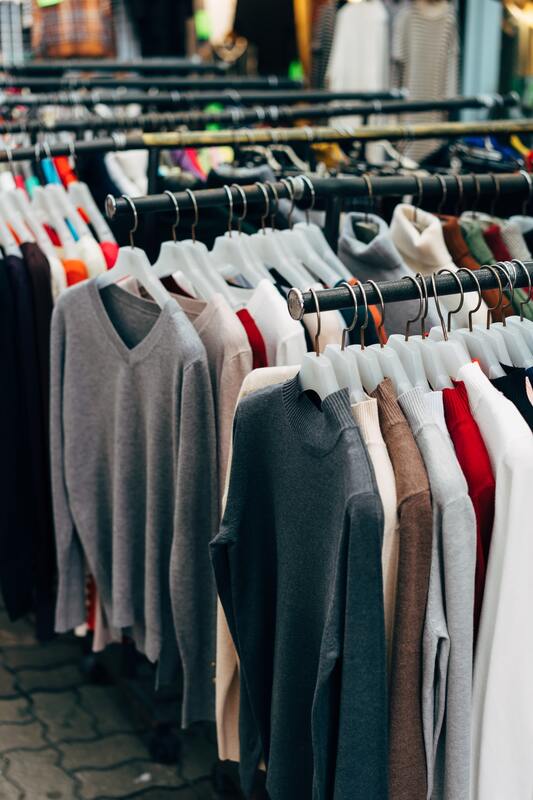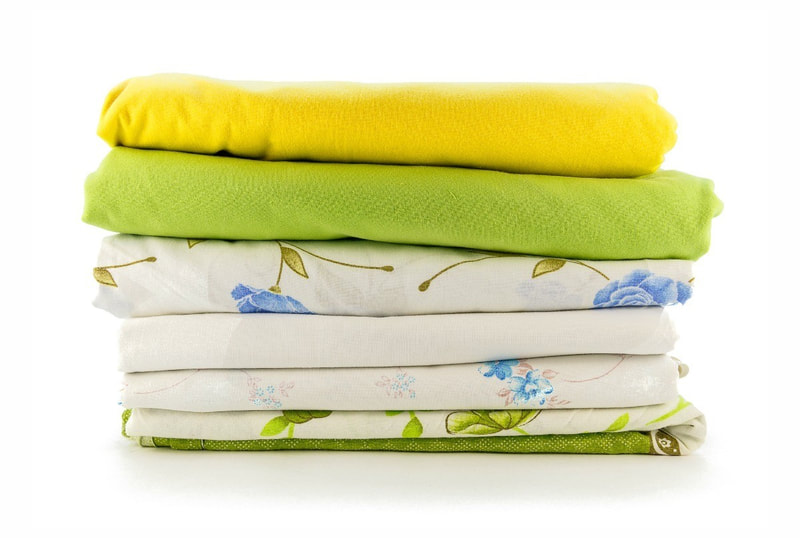A - Z Recycling and Waste Guide
Aerosol Containers
If containers have any product in them they are considered hazardous waste and should be taken to Household Hazardous Waste Depot (HHW Depot). EMPTY aerosol containers may be recycled with other metal cans in most recycling programs. Caps are trash.
Aluminum cans, pie plates, and foil (banned from landfill)
Clean and dry - recycle according to your hauler or transfer station's guidance.
Agricultural Plastic
(Bale wrap, sheet plastic mulch, etc.)
Ag plastics should be managed as trash. Burning or burying agricultural plastics or other types of farm rubbish is strictly prohibited. Unfortunately, agricultural plastic is difficult to recycle and at this time there are no local recycling outlets.
If containers have any product in them they are considered hazardous waste and should be taken to Household Hazardous Waste Depot (HHW Depot). EMPTY aerosol containers may be recycled with other metal cans in most recycling programs. Caps are trash.
Aluminum cans, pie plates, and foil (banned from landfill)
Clean and dry - recycle according to your hauler or transfer station's guidance.
Agricultural Plastic
(Bale wrap, sheet plastic mulch, etc.)
Ag plastics should be managed as trash. Burning or burying agricultural plastics or other types of farm rubbish is strictly prohibited. Unfortunately, agricultural plastic is difficult to recycle and at this time there are no local recycling outlets.

Ammunition
Ammunition cannot be brought to a HHW Depot. If the ammo is in useable condition, your police department or a gun shop may be able to use it. If the ammo is old, wet, or corroded, ask your police department about proper disposal.
Animals See “Dead Animals”
Antifreeze/Coolant
Coolant from vehicles (antifreeze) is considered hazardous waste and should be taken to the HHW Depot. Some local service stations accept antifreeze. Give yours a call.
Ammunition cannot be brought to a HHW Depot. If the ammo is in useable condition, your police department or a gun shop may be able to use it. If the ammo is old, wet, or corroded, ask your police department about proper disposal.
Animals See “Dead Animals”
Antifreeze/Coolant
Coolant from vehicles (antifreeze) is considered hazardous waste and should be taken to the HHW Depot. Some local service stations accept antifreeze. Give yours a call.

Appliances (banned from landfill)
Clothes dryers, dishwashers, freezers, refrigerators, stoves, washing machines, water heaters - these are all banned from the landfill.
Non-profit COVER Home Repair in White River Junction accepts donations of clean, working, large appliances as space allows for redistribution to needy members of the community. Please call ahead. LISTEN stores accept some small appliances in good working order. Community listservs and Front Porch Forum are other options for passing along usable items.
If no longer serviceable, appliances may be brought to your local transfer station. Although appliances are sometimes taken at no charge, there is a fee for the removal of CFC’s (Freon) from refrigerators, freezers, dehumidifiers, and A/C units.
Asbestos - a hazardous and potentially dangerous material if mishandled
Removal of asbestos in any form, friable or non-friable may cause respiratory damage if inhaled. Friable asbestos (soft and fibrous such as pipe insulation) is the most hazardous. Non-friable asbestos (often found in siding and roof shingles and floor tiles of certain vintage) is less likely to break into airborne particles and therefore is less hazardous. If you have asbestos wastes, look online for “Asbestos Abatement & Removal” and “Asbestos Consulting & Testing.” Or call the Vermont Agency of Natural Resources at 802-241-3800 for further information.
Some forms of asbestos, such as tiles and roofing, do not need to be removed by a professional asbestos removal company, but disposal of these materials is very strict. Asbestos tiles, siding and roofing must be removed damp, wrapped securely in plastic and taken directly to a landfill or transfer station which accepts the materials.
Clothes dryers, dishwashers, freezers, refrigerators, stoves, washing machines, water heaters - these are all banned from the landfill.
Non-profit COVER Home Repair in White River Junction accepts donations of clean, working, large appliances as space allows for redistribution to needy members of the community. Please call ahead. LISTEN stores accept some small appliances in good working order. Community listservs and Front Porch Forum are other options for passing along usable items.
If no longer serviceable, appliances may be brought to your local transfer station. Although appliances are sometimes taken at no charge, there is a fee for the removal of CFC’s (Freon) from refrigerators, freezers, dehumidifiers, and A/C units.
Asbestos - a hazardous and potentially dangerous material if mishandled
Removal of asbestos in any form, friable or non-friable may cause respiratory damage if inhaled. Friable asbestos (soft and fibrous such as pipe insulation) is the most hazardous. Non-friable asbestos (often found in siding and roof shingles and floor tiles of certain vintage) is less likely to break into airborne particles and therefore is less hazardous. If you have asbestos wastes, look online for “Asbestos Abatement & Removal” and “Asbestos Consulting & Testing.” Or call the Vermont Agency of Natural Resources at 802-241-3800 for further information.
Some forms of asbestos, such as tiles and roofing, do not need to be removed by a professional asbestos removal company, but disposal of these materials is very strict. Asbestos tiles, siding and roofing must be removed damp, wrapped securely in plastic and taken directly to a landfill or transfer station which accepts the materials.
Batteries (Household) (banned from landfill)
ALL batteries (AA, AAA, C, D, 9v, hearing aid, coin cell, rechargeables) are recyclable in Vermont through Call2Recycle and we strongly urge you to take batteries to your local transfer station for proper recycling. Andover and Windsor residents can recycle household batteries at their town offices.
Click here for information about what happens to the batteries after you take them to the transfer station or participating town office.
Cardboard (banned from landfill)
Corrugated (e.g., Amazon boxes) and box board (cereal boxes) are mandated recyclables in Vermont.
Catalogs
Clean and dry - recycle according to your hauler or transfer station's guidelines.
See “Magazines,” or “Junk Mail.”
ALL batteries (AA, AAA, C, D, 9v, hearing aid, coin cell, rechargeables) are recyclable in Vermont through Call2Recycle and we strongly urge you to take batteries to your local transfer station for proper recycling. Andover and Windsor residents can recycle household batteries at their town offices.
Click here for information about what happens to the batteries after you take them to the transfer station or participating town office.
Cardboard (banned from landfill)
Corrugated (e.g., Amazon boxes) and box board (cereal boxes) are mandated recyclables in Vermont.
Catalogs
Clean and dry - recycle according to your hauler or transfer station's guidelines.
See “Magazines,” or “Junk Mail.”
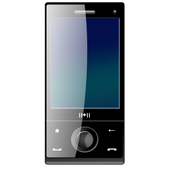
Cell Phones
Cell phones can be reused or recycled through national programs. Several programs give a percentage of proceeds to charities.
Cell phones can be reused or recycled through national programs. Several programs give a percentage of proceeds to charities.
- Collective Good~ www.collectivegood.com, (770) 856-9021
- Wireless Foundation ~ www.wirelessfoundation.org
- Keep America Green ~ www.ewasteaware.org
- Verizon HopeLine ~ Verizon Wireless retail stores, 1-800-426-2790
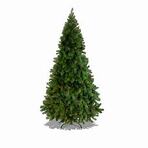
Clean Wood
The five transfer stations in the District accept clean wood: Cavendish, Ludlow, Rockingham, Springfield, and Weathersfield.
Christmas Trees
Christmas trees make excellent habitat for birds and other wildlife. Leave your tree out to decay naturally over time. Goats love to eat Christmas trees! Some towns chip trees into “Merry Mulch.” Contact your town office.
Clothes Dryer See "Appliances"
The five transfer stations in the District accept clean wood: Cavendish, Ludlow, Rockingham, Springfield, and Weathersfield.
Christmas Trees
Christmas trees make excellent habitat for birds and other wildlife. Leave your tree out to decay naturally over time. Goats love to eat Christmas trees! Some towns chip trees into “Merry Mulch.” Contact your town office.
Clothes Dryer See "Appliances"
Clothing/Textiles
There are a number of thrift stores in the area that accept clean and dry clothing for resale:
The Chester-Andover Family Center is a thriving 501c3 nonprofit charitable organization serving our community with three programs: a Thrift Shop, Food Shelf and Financial Assistance. https://www.chester-andoverfamilycenter.org/
Thrift Store hours are 9:00 a.m. - 1:00 p.m., Wednesdays and Saturdays 802-463-3100
Ludlow, VT
802-228-3663
There are a number of thrift stores in the area that accept clean and dry clothing for resale:
- Chester-Andover Family Center
The Chester-Andover Family Center is a thriving 501c3 nonprofit charitable organization serving our community with three programs: a Thrift Shop, Food Shelf and Financial Assistance. https://www.chester-andoverfamilycenter.org/
- The Community Closet Thrift Store
- The Community Christmas Fund of Immanuel Episcopal Church
- Greater Falls United Network
- Parks Place
- Our Place, and
- Other local organizations.
Thrift Store hours are 9:00 a.m. - 1:00 p.m., Wednesdays and Saturdays 802-463-3100
- Black River Good Neighbor Services
Ludlow, VT
802-228-3663
- Apparel Impact Dropboxes
Construction & Demolition Materials (C & D)
"Clean" wood must be kept out of landfill-bound trash! Click here for more information on C&D recycling.
Reuse If materials can be used by someone else, try one of the following options:
Recycling C&D waste should be recycled whenever possible. Here are two sources:
Disposal Please be sure to properly separate trash from C&D waste.
Contaminated Soil
Oil contamination of soil often happens under outdoor storage tanks or from leaky heavy equipment such as skidders. If you have soil that is suspected of, or known to be contaminated with hazardous substances such as oil or lead, contact the Hazardous Waste Division of the VT Agency of Natural Resources (ANR) at (802) 828-1138 for assistance.
"Clean" wood must be kept out of landfill-bound trash! Click here for more information on C&D recycling.
Reuse If materials can be used by someone else, try one of the following options:
- COVER Home Repair, WRJ ~ (802) 296-7241
- Vermont Salvage Exchange, WRJ ~ (802) 295-7616
- Freecycle, Front Porch Forum, Your local listserv
Recycling C&D waste should be recycled whenever possible. Here are two sources:
- Hammond Grinding and Recycling, Canaan NH (603) 523-4353
- VT Agency of Natural Resources C & D Information
Disposal Please be sure to properly separate trash from C&D waste.
Contaminated Soil
Oil contamination of soil often happens under outdoor storage tanks or from leaky heavy equipment such as skidders. If you have soil that is suspected of, or known to be contaminated with hazardous substances such as oil or lead, contact the Hazardous Waste Division of the VT Agency of Natural Resources (ANR) at (802) 828-1138 for assistance.
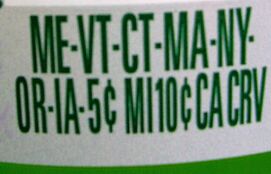
Deposit Bottles and Cans
- The Exit Ate (8) Ascutney Redemption Center (603-504-8331) is open during the following hours:
Tuesday 10 am - 2 pm
Wednesday 10 am - 2 pm
Thursday 10 am - 2 pm
Saturday 9-2 pm
- Springfield Redemption Center 6 Chester Road, Springfield 802-885-3404
Drugs (see Pharmaceuticals)
Dry Cleaning Bags & Hangers
Some dry cleaners will take back bags and hangers for recycling and/or reuse. Metal hangers may also be recycled as scrap metal through your regular recycling outlet. The clear bags are also accepted at local grocery stores which host "Recycle your grocery bags here" bins.
Drywall
Clean drywall from construction or remodeling projects can be recycled at -
Myers Recycling Center
216 Red Can Drive
Colchester, Vermont
802-655-4312
Egg Cartons
Offer them to someone with chickens. They also make great craft supply holders. Egg cartons made of paper may be recycled with mixed paper or boxboard at your recycling center. Try to avoid buying eggs in Styrofoam cartons whenever possible because they are not currently collected in the SWWCSWMD for recycling.
Electronics (a.k.a. E-waste) - banned from the landfill
Small working electrical appliances may be donated to thrift shops.
The transfer stations in our District accept electronics, along with computers and TVs through Vermont E-Cycles.
Explosives -banned from the landfill
Nitroglycerin gradually leaches out of TNT and other explosives and becomes unstable. Contact the state police. Please do not transport or dispose of explosives yourself.
Fire Extinguishers
Some fire extinguishers can be refilled but many household fire extinguishers sold today are not refillable. If you cannot refill your common "ABC" compressed air, dry powder extinguisher, it should be de-pressurized and dismantled before disposal. Release the product into a trash receptacle then remove the valve by unscrewing from the canister. The metal canister, once de-pressurized and empty, may be recycled as scrap metal. The powder and valve can go in the regular trash.
PLEASE NOTE: Very old fire extinguishers (often brass, glass, or copper) may contain extremely hazardous substances. Bring them to the HHW Depot.
Fireworks - banned from the landfill
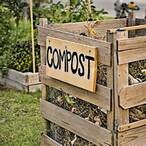
Food Waste/Food Residuals - banned from the landfill
Freezer See "Appliances"
Freon (a brand name we use to mean all refrigerants) is found in air conditioners, dehumidifiers, and refrigeration units. By law, Freon and other chlorofluorocarbons (CFCs) cannot be released to the atmosphere but must be removed with special equipment. This is because the gases destroy the ozone in the atmosphere, leaving the Earth prone to higher levels of solar radiation. Please take your old refrigerator/freezer or air conditioner to your local transfer station where the Freon will be properly removed for a fee. Be careful not to puncture the tubes of the appliance and emit the gases into the atmosphere. Alternatively, you may be able to take Freon-containing appliances to Evergreen Recycling on "A" Street in Wilder for a fee (802-295-7506).
Furniture
Local thrift stores and yard sales are a great outlet for your used furniture. It may be of use to someone else even if you don't want it or don't consider it good enough. If the furniture is really beyond use, bring it to your transfer station for disposal. Or your local hauler may be willing to take it. It's best to call them first.
- Compost them in your backyard, or
- Bring them to the transfer station's food scrap container (free, subject to change), or
- Pay a hauler to pick them up at your house.
Freezer See "Appliances"
Freon (a brand name we use to mean all refrigerants) is found in air conditioners, dehumidifiers, and refrigeration units. By law, Freon and other chlorofluorocarbons (CFCs) cannot be released to the atmosphere but must be removed with special equipment. This is because the gases destroy the ozone in the atmosphere, leaving the Earth prone to higher levels of solar radiation. Please take your old refrigerator/freezer or air conditioner to your local transfer station where the Freon will be properly removed for a fee. Be careful not to puncture the tubes of the appliance and emit the gases into the atmosphere. Alternatively, you may be able to take Freon-containing appliances to Evergreen Recycling on "A" Street in Wilder for a fee (802-295-7506).
Furniture
Local thrift stores and yard sales are a great outlet for your used furniture. It may be of use to someone else even if you don't want it or don't consider it good enough. If the furniture is really beyond use, bring it to your transfer station for disposal. Or your local hauler may be willing to take it. It's best to call them first.

Gasoline (banned from landfill)
Waste gasoline is hazardous and highly flammable—please take it to the HHW Depot for proper disposal.
DO NOT dump it on the ground where it can get into the water supply. “If you dump it, you drink it.”
Glass (banned from landfill)
Glass food and beverage containers may be recycled with your regular recycling program but check first because some transfer stations require that the glass be recycled separately. Most programs require that you rinse the containers. If the lid or cap is less than 2" in diameter, throw it in the trash. Smaller lids/caps fall through the grates at a MRF (Material Recovery Facility.) Labels do not need to be removed.
NOTE: In most cases*, you cannot recycle light bulbs, window glass, china, crystal, ceramics, mirrors or drinking glasses with food and beverage glass. Even in very small amounts, these items contaminate regular recycled glass. Ask your transfer station operator or trash hauler.
Grocery Bags
Household Hazardous Waste
The District has opened an HHW Depot in Springfield for more convenient access to dispose of HHW properly. Click here for a list of what is accepted. Call 802-674-9235 for more information. Make an appointment on the Home page.
Junk Mail (banned from landfill)
Recycle with paper or with other recyclables.
Waste gasoline is hazardous and highly flammable—please take it to the HHW Depot for proper disposal.
DO NOT dump it on the ground where it can get into the water supply. “If you dump it, you drink it.”
Glass (banned from landfill)
Glass food and beverage containers may be recycled with your regular recycling program but check first because some transfer stations require that the glass be recycled separately. Most programs require that you rinse the containers. If the lid or cap is less than 2" in diameter, throw it in the trash. Smaller lids/caps fall through the grates at a MRF (Material Recovery Facility.) Labels do not need to be removed.
NOTE: In most cases*, you cannot recycle light bulbs, window glass, china, crystal, ceramics, mirrors or drinking glasses with food and beverage glass. Even in very small amounts, these items contaminate regular recycled glass. Ask your transfer station operator or trash hauler.
Grocery Bags
- Reduce. If you accumulate a lot of paper or plastic grocery bags, consider switching to reusable sacks. They are easier to handle and stronger.
- Reuse. The Upper Valley Co-op, many village stores, and thrift stores such as LISTEN, accept clean brown bags or plastic bags for reuse.
- Recycle. Brown paper bags can be recycled in your regular recycling program. Some grocery stores accept plastic grocery bags for recycling. Look in the front of the store or inside for a collection container. Be sure to put only clean and dry plastic grocery bags into the collection container.
Household Hazardous Waste
The District has opened an HHW Depot in Springfield for more convenient access to dispose of HHW properly. Click here for a list of what is accepted. Call 802-674-9235 for more information. Make an appointment on the Home page.
Junk Mail (banned from landfill)
Recycle with paper or with other recyclables.
Lead - a hazardous and potentially dangerous material if mishandled. Bring to your transfer station or metal recycler.
Leaves, Grass Clippings, Branches, and Other Yard Debris (banned from landfill)
Leaf/yard waste and clean (untreated wood) must be separated from your household trash and are not allowed to be landfilled (since July 1, 2016). The best management is to let them decompose in a pile on your own property. Shredded leaves are an excellent addition to food scrap compost piles. Alternatively, yard wastes are accepted at your local transfer station. Haulers who offer trash collection must also offer a service to collect leaf and yard debris, separate from other waste. Neither haulers nor transfer stations are required to collect clean wood. However, transfer stations may offer a spot for dropping off clean wood for other residents to pick up for reuse.
Light Ballasts
Light ballasts are the heavy black boxes found in some fluorescent light bulb fixtures. They can be recycled with scrap metal if they are labeled “No PCBs”. Older ballasts contain capacitors whose oil contains hazardous polychlorinated biphenyls (PCBs). If a ballast is unmarked, bring it to your local transfer station for proper disposal.
Magazines (banned from landfill)
After you read a subscription magazine and before you recycle it, consider passing the magazine on to a friend, an office waiting room, your local library or school.
See also “Junk Mail.”
Medical Waste (banned from landfill) Speak with your pharmacist or health care provider about disposal options.
Mercury-Containing Devices (banned from landfill)
FUN FACT: The process of making felt hats used to include compounds containing mercury. The over-exposure of mercury led to brain deterioration in the hat makers. Hence the expression: "Mad as a hatter."
After you read a subscription magazine and before you recycle it, consider passing the magazine on to a friend, an office waiting room, your local library or school.
See also “Junk Mail.”
Medical Waste (banned from landfill) Speak with your pharmacist or health care provider about disposal options.
Mercury-Containing Devices (banned from landfill)
- thermometers with silver fluid,
- thermostats (non-digital),
- fluorescent light bulbs,
- gas-fired appliances,
- some trunk light switches on cars,
- button-size batteries,
- dairy barn manometers,
- relays, and
- neon signs
FUN FACT: The process of making felt hats used to include compounds containing mercury. The over-exposure of mercury led to brain deterioration in the hat makers. Hence the expression: "Mad as a hatter."
Metal
Many of the District towns provide free, ongoing scrap metal collection at their transfer station, except for Freon-containing appliances. See “Freon”.
PLEASE NOTE: Large items like junk cars or large farm equipment cannot be added to the normal scrap metal piles, please see “Automobiles,” or give us a call for more options.
Mixed Paper (banned from landfill)
White and colored office paper, envelopes, unwanted mail, and cards (paper portions only, no plastic sleeves, no sample CDs, etc.) can be recycled as mixed paper with your regular recycling program. If you want to reduce your junk mail, see “Junk Mail.”
Many of the District towns provide free, ongoing scrap metal collection at their transfer station, except for Freon-containing appliances. See “Freon”.
PLEASE NOTE: Large items like junk cars or large farm equipment cannot be added to the normal scrap metal piles, please see “Automobiles,” or give us a call for more options.
Mixed Paper (banned from landfill)
White and colored office paper, envelopes, unwanted mail, and cards (paper portions only, no plastic sleeves, no sample CDs, etc.) can be recycled as mixed paper with your regular recycling program. If you want to reduce your junk mail, see “Junk Mail.”
Motor Oil (banned from landfill)
Residents may take their used-but-clean motor oil (no other automotive fluids) to the locations listed below. (If the oil is contaminated with antifreeze or water or anything, take it to a household hazardous waste collection.) Please follow the requirements listed here, and call first to be sure they have room:
Requirements:
PLEASE NOTE: When used oil is dumped on the ground or poured down the drain, it becomes a serious pollutant of our ground and surface waters. Remember, if you dump it, you drink it!
Residents may take their used-but-clean motor oil (no other automotive fluids) to the locations listed below. (If the oil is contaminated with antifreeze or water or anything, take it to a household hazardous waste collection.) Please follow the requirements listed here, and call first to be sure they have room:
- Spurr's Repair in Perkinsville, 802-263-5459
- Advance Auto Parts in Springfield, 802-546-2558
- Matulonis Body Shop in Springfield, 802-885-5000
- Adams Trucking and Excavating, Westminster, 802-463-2213
- Wal-Mart and Auto Zone
Requirements:
- The oil must be “clean” (No water, No antifreeze, No other fluids mixed with it).
- Typically, no more than 5 gallons at a time.
- One-gallon container maximum size.
- Container must be see-through—like milk jugs or windshield fluid.
PLEASE NOTE: When used oil is dumped on the ground or poured down the drain, it becomes a serious pollutant of our ground and surface waters. Remember, if you dump it, you drink it!
Needles
To dispose of syringes safely, ask your physician or pharmacy if they will take back used syringes for disposal. If neither your physician nor your pharmacy provides a collection system for you, follow these suggestions:
Newspaper (banned from landfill)
Newspaper can be recycled with your regular recycling program. The rule for inserts is, “if it comes with the newspaper it can go with the newspaper.”
Office Paper (banned from landfill)
White office paper is sometimes collected separately from other mixed paper because of its high value in the recycling market. Ask at your recycling program to see if it is separated from or included in the mixed paper category.
To dispose of syringes safely, ask your physician or pharmacy if they will take back used syringes for disposal. If neither your physician nor your pharmacy provides a collection system for you, follow these suggestions:
- Make a large warning label that says: “USED SYRINGES” and “DO NOT RECYCLE.” Put the label on an empty plastic bottle like a laundry detergent bottle. Carefully put each of your used syringes into the bottle.
- When it is full, put heavy tape over the closed bottle cap and dispose of the filled bottle in your household trash. Do NOT put the container in your recycling bin!
Newspaper (banned from landfill)
Newspaper can be recycled with your regular recycling program. The rule for inserts is, “if it comes with the newspaper it can go with the newspaper.”
Office Paper (banned from landfill)
White office paper is sometimes collected separately from other mixed paper because of its high value in the recycling market. Ask at your recycling program to see if it is separated from or included in the mixed paper category.
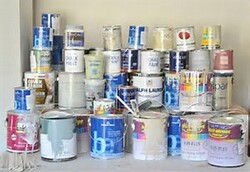
Paint Products (banned from landfill)
- Empty Paint Cans. Clean, dry, empty latex paint cans may be recycled with scrap metal at your closest transfer station/recycling center. Empty plastic latex paint containers are trash.
- Partially Full Cans. If there is any paint left in the can, do not put it in the trash and do not dump it down the drain! Liquid paint in the trash makes a huge mess and is not allowed in a landfill. Septic/sewer systems are not designed to treat any type of paint. Liquid paint can be recycled. First try to find a friend or neighbor who can use the paint, then -
- All Paint — The District has a household hazardous waste (HHW) depot at which paint is accepted, along with a host of other hazardous materials. Bring unwanted paint there (by appointment) OR to one of the following retailers: Aubuchon Hardware and Sherwin-Williams in Springfield, and Aubuchon Hardware in Ludlow and Windsor. The retailers will only take cans that are not leaking, rusty, and are labeled. Some retailers will only accept 5 one-gallon cans per visit. The Depot will take the rest.
Oil
See "Used Oil" below
See "Used Oil" below

Pesticides, Herbicides, and Fungicides (banned from landfill)
Please take your pesticides and herbicides to the District's household hazardous waste (HHW) depot. The HHW Depot is open May through September. No lines but everyone must make an appointment. If you are a farm or business, please pre-register by contacting us.
Please take your pesticides and herbicides to the District's household hazardous waste (HHW) depot. The HHW Depot is open May through September. No lines but everyone must make an appointment. If you are a farm or business, please pre-register by contacting us.

Pharmaceuticals
Disposal options - Three easy steps to properly store and get rid of medications:
- LOCK
Store your medications in a lock box or locked medicine cabinet.
- DROP
Many pharmacies and law enforcement facilities operate year-round drug collection or drop-off programs. Find participating sites near you at Vermont Department of Health.
Or mail unused medication in a pre-paid envelope. Visit the Vermont Department of Health for details.
Do NOT pour or flush medications down the drain. Water treatment plants and septic tanks are not designed to remove these chemicals.
Take to your local police station. Many of them (Rockingham, Springfield, Windsor) have receptacles in their lobbies for unwanted medicines.
Disposal options - Three easy steps to properly store and get rid of medications:
- LOCK
Store your medications in a lock box or locked medicine cabinet.
- DROP
Many pharmacies and law enforcement facilities operate year-round drug collection or drop-off programs. Find participating sites near you at Vermont Department of Health.
Or mail unused medication in a pre-paid envelope. Visit the Vermont Department of Health for details.
Do NOT pour or flush medications down the drain. Water treatment plants and septic tanks are not designed to remove these chemicals.
Take to your local police station. Many of them (Rockingham, Springfield, Windsor) have receptacles in their lobbies for unwanted medicines.
Phone Books (banned from landfill)
Phone books may be placed with your regular recycling.
Pizza Boxes
If there is cheese stuck on the bottom, or big greasy stains, put the box in the trash. If the box is free of food and most grease it may be placed with your other recycling. Cardboard and box board make good sources of carbon (the brown stuff) for backyard composting.
Plastics
Some local transfer stations and commercial haulers will accept #1-#7 plastics. Do not be fooled by #6 polystyrene containers of any kind! They are not recyclable in this area of the country. Despite their convenience they never decompose. Use alternatives wherever possible. See "Styrofoam".
All transfer stations and trash haulers must accept #1 (PET) and #2 (HDPE) plastic containers. (banned from landfill)
NOTE: Caps should be thrown away. Do not recycle motor oil jugs or chemical containers. See "Grocery Bags." Some dry cleaners will accept dry cleaning bags for recycling.
Phone books may be placed with your regular recycling.
Pizza Boxes
If there is cheese stuck on the bottom, or big greasy stains, put the box in the trash. If the box is free of food and most grease it may be placed with your other recycling. Cardboard and box board make good sources of carbon (the brown stuff) for backyard composting.
Plastics
Some local transfer stations and commercial haulers will accept #1-#7 plastics. Do not be fooled by #6 polystyrene containers of any kind! They are not recyclable in this area of the country. Despite their convenience they never decompose. Use alternatives wherever possible. See "Styrofoam".
All transfer stations and trash haulers must accept #1 (PET) and #2 (HDPE) plastic containers. (banned from landfill)
NOTE: Caps should be thrown away. Do not recycle motor oil jugs or chemical containers. See "Grocery Bags." Some dry cleaners will accept dry cleaning bags for recycling.
Printer Cartridges See "Toner Cartridges"
Propane Tanks Your local transfer station will accept them for a small fee per unit. Extra-large tanks (100+ lb) - Not accepted at any transfer station; contact a propane supply vendor.
Prosthetics
Penta Medical Recycling collects used prostheses to bring high quality, low cost prosthetic care to amputees all over the world. Visit their website to learn more about their work and how to donate (free shipping).
Rags and Oily Rags
Rags are generally not accepted at rummage sales nor through textile recycling. Use them well, see if your mechanic wants them. When too far gone, they can go in regular trash. Oily rags from home workshops or art studios present a fire hazard as well as a air pollution hazard. Keep them in a fire-safe, closed container, then bring them to a hazardous waste collection.
Railroad Ties
Railroad ties may be disposed of with construction and demolition wastes (see Construction and Demolition Waste).
Range See "Appliances"
Recyclables Ask your trash hauler or transfer station for their specific guidelines.
Propane Tanks Your local transfer station will accept them for a small fee per unit. Extra-large tanks (100+ lb) - Not accepted at any transfer station; contact a propane supply vendor.
Prosthetics
Penta Medical Recycling collects used prostheses to bring high quality, low cost prosthetic care to amputees all over the world. Visit their website to learn more about their work and how to donate (free shipping).
Rags and Oily Rags
Rags are generally not accepted at rummage sales nor through textile recycling. Use them well, see if your mechanic wants them. When too far gone, they can go in regular trash. Oily rags from home workshops or art studios present a fire hazard as well as a air pollution hazard. Keep them in a fire-safe, closed container, then bring them to a hazardous waste collection.
Railroad Ties
Railroad ties may be disposed of with construction and demolition wastes (see Construction and Demolition Waste).
Range See "Appliances"
Recyclables Ask your trash hauler or transfer station for their specific guidelines.
Sharps (discarded)
See Syringes
Shoes
Tie (or rubber-band) shoes in pairs and take them to a local thrift shops with your used clothing. You may also place them in an Apparel Impact collection box. Click www.apparelimpact.com/nearestbin
Steel Cans (banned from landfill)
Clean and dry - recycle according to your hauler or transfer station's guidelines.
Stove See "Appliances"
Styrofoam
Polystyrene (PS#6) (Also referred to as EPS - Expanded Polystyrene or Styrofoam)
Vermont Act 69 (2019) prohibits stores and food service establishments from providing the following single-use containers: foam cups, take-out/to-go containers, plates, trays, and cartons for eggs or other food. These products may not be sold in Vermont. These prohibitions do not apply to meat and fish packaging or food packaged out-of-state or sold out-of-state.
Syringes
To properly dispose of "sharps" and syringes, it's safer to toss them into a thick plastic container such as an empty laundry detergent bottle; it's more puncture-resistant than most other types of plastic bottles.
The District has created a fluorescent orange warning sticker. Apply it to an empty laundry detergent bottle. Used syringes and other sharps should be placed inside and collected until the bottle is 2/3 full.
The bottle should then be capped and sealed with heavy duty tape.
Final steps...dispose of the bottle in your household trash and let your garbage hauler know that sharps are present. Do NOT recycle the container. For stickers, call the District at 802-674-9235 or e-mail [email protected]. We will mail them to you.
See Syringes
Shoes
Tie (or rubber-band) shoes in pairs and take them to a local thrift shops with your used clothing. You may also place them in an Apparel Impact collection box. Click www.apparelimpact.com/nearestbin
Steel Cans (banned from landfill)
Clean and dry - recycle according to your hauler or transfer station's guidelines.
Stove See "Appliances"
Styrofoam
Polystyrene (PS#6) (Also referred to as EPS - Expanded Polystyrene or Styrofoam)
Vermont Act 69 (2019) prohibits stores and food service establishments from providing the following single-use containers: foam cups, take-out/to-go containers, plates, trays, and cartons for eggs or other food. These products may not be sold in Vermont. These prohibitions do not apply to meat and fish packaging or food packaged out-of-state or sold out-of-state.
- Packing Peanuts - These cannot be recycled with your regular recycling. Hanover Transfer & Storage (82 Benning Street, Building 1, West Lebanon (603-643-3103) collects clean, dry peanuts (PS#6, starch-based, and bio-degradable.) Many maple syrup producers take packing peanuts for shipping as well as other retailers who ship merchandise. Always call first for any of these drop-offs.
- Packing Blocks - These cannot be recycled with your regular recycling, either. Several collection events have been organized for this material in the Upper Valley. Clean and dry blocks and food service trays are collected by volunteers at a designated location. They're loaded on trucks and driven to the Gilford, New Hampshire transfer station where they're densified, shipped to Canada and made into building insulation, architectural molding, and picture frames. Material dropped off at a collection event must be CLEAN and FREE OF ALL TAPE AND LABELS. In the SWWCSWMD, however, there are currently no collection events.
Syringes
To properly dispose of "sharps" and syringes, it's safer to toss them into a thick plastic container such as an empty laundry detergent bottle; it's more puncture-resistant than most other types of plastic bottles.
The District has created a fluorescent orange warning sticker. Apply it to an empty laundry detergent bottle. Used syringes and other sharps should be placed inside and collected until the bottle is 2/3 full.
The bottle should then be capped and sealed with heavy duty tape.
Final steps...dispose of the bottle in your household trash and let your garbage hauler know that sharps are present. Do NOT recycle the container. For stickers, call the District at 802-674-9235 or e-mail [email protected]. We will mail them to you.
Tanks
Televisions
TVs may not go in the trash. They may be recycled with the State of Vermont’s electronics recycling program. Click here.
- Propane tanks—Pressurized tanks which are empty or which no longer work (propane, butane, oxygen, etc.) should be returned to the retailer or manufacturer. Some retailers take your used tank when you buy a new one, even if the old one wasn't theirs. For grill tanks, swapping them at a department store or convenience store is a good bet, as they often save you money on a new tank with the new "over-fill protection" valve. If you cannot find an outlet for your empty tank, you might be able to take it to your local transfer station.
- Fuel oil tanks—A fuel oil tank cannot go in the scrap metal pile unless it has been cut in half, a potentially explosive task. The tanks often have hazardous sludge in them. Best bet is to hire a tank removal company, which can be found in the yellow pages under "Environmental Products and Services" or "Tank Cleaning".
Televisions
TVs may not go in the trash. They may be recycled with the State of Vermont’s electronics recycling program. Click here.
Textiles
- Before you pitch your unwanted clothing and bedroom linens consider having a neighborhood yard sale or a clothing swap party with friends.
- Thrift stores will accept clothing and linens that are in good to excellent condition that they can sell. See "Clothing" for a list of area thrift stores.
- If you use the Ludlow or Springfield transfer stations, you can bring saleable clothing and linens there.
- If your clothing is torn or stained offer them as rags to your local mechanic.
- Some towns have Apparel Impact boxes for textile recycling.
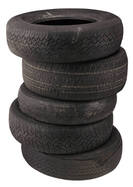
Thermometers and Thermostats
Thermometers containing silver liquid, and many older thermostats (round in shape or non-digital), contain mercury. Please take them to the HHW Depot in Springfield. We can offer you one free replacement digital fever thermometer per household when you bring in your old one(s). Also see “Mercury-Containing Devices” for more details on mercury.
Tin Cans (banned from landfill)
Clean and dry - recycle according to your hauler or transfer station's guidelines.
Tires -banned from the landfill
Each of the five transfer stations in the District accepts tires for a fee.
Toner Cartridges
Ink jet and laser printer cartridges, and typewriter cartridges and ribbons, can be re-filled and reused. However, they cannot be recycled with regular plastics, even if there is a recycling number on the cartridge. Ink jet cartridge recyclers often give revenues to charitable organizations to encourage recycling. Here are some places to recycle:
Another great option - Clean Planet, www.kmcleanplanet.com (855-45-EARTH) will recycle any toner or ink cartridge for free. Clean Planet will send you prepaid shipping labels for boxes you already have or they will send you boxes. Just load the empty/unusable ink and toner cartridges into a box, seal it up and either have UPS pick it up or take the box to a UPS store/drop-off location.
Thermometers containing silver liquid, and many older thermostats (round in shape or non-digital), contain mercury. Please take them to the HHW Depot in Springfield. We can offer you one free replacement digital fever thermometer per household when you bring in your old one(s). Also see “Mercury-Containing Devices” for more details on mercury.
Tin Cans (banned from landfill)
Clean and dry - recycle according to your hauler or transfer station's guidelines.
Tires -banned from the landfill
Each of the five transfer stations in the District accepts tires for a fee.
Toner Cartridges
Ink jet and laser printer cartridges, and typewriter cartridges and ribbons, can be re-filled and reused. However, they cannot be recycled with regular plastics, even if there is a recycling number on the cartridge. Ink jet cartridge recyclers often give revenues to charitable organizations to encourage recycling. Here are some places to recycle:
- Staples and Best Buy
- Vermont Toner Recharge (Burlington) 802-864-7637
Another great option - Clean Planet, www.kmcleanplanet.com (855-45-EARTH) will recycle any toner or ink cartridge for free. Clean Planet will send you prepaid shipping labels for boxes you already have or they will send you boxes. Just load the empty/unusable ink and toner cartridges into a box, seal it up and either have UPS pick it up or take the box to a UPS store/drop-off location.

Trees and Brush
If you cut trees and brush into small pieces and leave them on the ground, they will decompose while providing habitat for many small creatures. Alternatively, the five transfer stations in the District will accept brush and wood trimmings; call to ask for guidance specific to each location.
Tyvek
DuPont Tyvek is made of high-density polyethylene (HDPE). It is not paper so do not add it to your curbside blue recycling bin and do not bring it to your recycling center. It can be recycled for use in a variety of new products, including plastic lumber for picnic tables, park benches, construction fencing and also mud flaps but it is unclear whether or not Dupont, which makes the product, has a recycling program for Tyvek.
Used Oil
Used motor oil is accepted at Advance Auto Parts (802-546-2558) and Matulonis Body Shop, (802-885-5000), both in Springfield, Adams Trucking and Excavating at 151 Saxtons River Road in Westminster (802-463-2213) and Spurr’s Auto Repair, Perkinsville (802-263-5459). Call first to confirm. All of these businesses want the oil to be “clean” - no water, no antifreeze, no other fluids mixed with it. Wal-Mart takes it, too.
Washing Machine See "Appliances"
If you cut trees and brush into small pieces and leave them on the ground, they will decompose while providing habitat for many small creatures. Alternatively, the five transfer stations in the District will accept brush and wood trimmings; call to ask for guidance specific to each location.
Tyvek
DuPont Tyvek is made of high-density polyethylene (HDPE). It is not paper so do not add it to your curbside blue recycling bin and do not bring it to your recycling center. It can be recycled for use in a variety of new products, including plastic lumber for picnic tables, park benches, construction fencing and also mud flaps but it is unclear whether or not Dupont, which makes the product, has a recycling program for Tyvek.
Used Oil
Used motor oil is accepted at Advance Auto Parts (802-546-2558) and Matulonis Body Shop, (802-885-5000), both in Springfield, Adams Trucking and Excavating at 151 Saxtons River Road in Westminster (802-463-2213) and Spurr’s Auto Repair, Perkinsville (802-263-5459). Call first to confirm. All of these businesses want the oil to be “clean” - no water, no antifreeze, no other fluids mixed with it. Wal-Mart takes it, too.
Washing Machine See "Appliances"
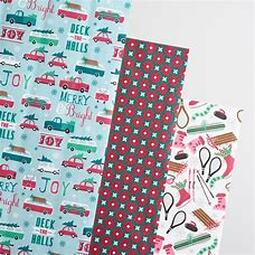
Wood Ash
Wood ash can help in lawn growth when spread in a thin layer. It doesn't help your compost pile so best to leave it out. If completely COLD, wood ash may be disposed of as trash. It's a potential tremendous fire hazard for trash trucks and the landfill so be sure that the ash is STONE COLD.
Wrapping Paper
Regular, uncoated wrapping paper is recyclable.
Remove ribbons and bows before recycling.
Better yet, flatten out the paper and reuse it along with ribbons and bows.
Best yet, use paper grocery bags, newspaper, dishtowels, tablecloths, or pieces of fabric for wrapping gifts instead of paper.
Wood ash can help in lawn growth when spread in a thin layer. It doesn't help your compost pile so best to leave it out. If completely COLD, wood ash may be disposed of as trash. It's a potential tremendous fire hazard for trash trucks and the landfill so be sure that the ash is STONE COLD.
Wrapping Paper
Regular, uncoated wrapping paper is recyclable.
Remove ribbons and bows before recycling.
Better yet, flatten out the paper and reuse it along with ribbons and bows.
Best yet, use paper grocery bags, newspaper, dishtowels, tablecloths, or pieces of fabric for wrapping gifts instead of paper.
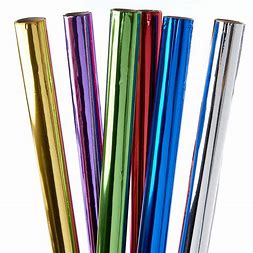
Non-recyclable Wrapping paper:
- glitter
- foil
- metallic paper or paper with metallic print
- Mylar (shiny plastic foil)
- cellophane
- coated paper
